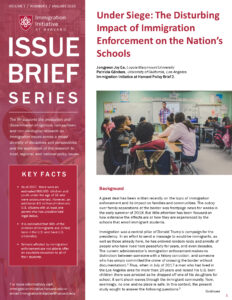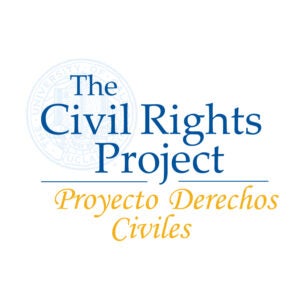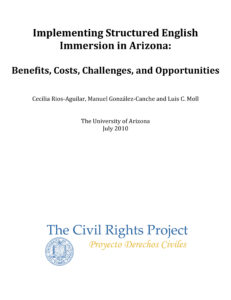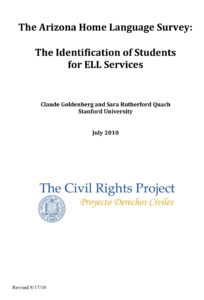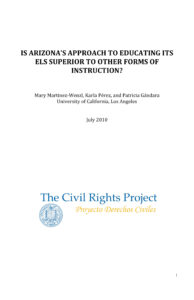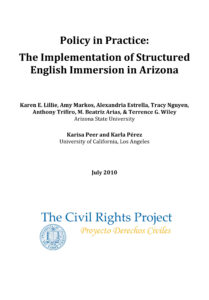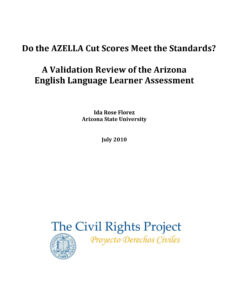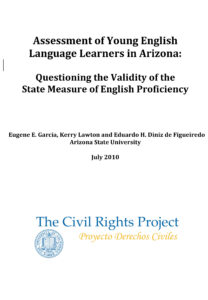This is one of nine papers of the Arizona Educational Equity Project: 21 senior scholars and advanced graduate students from four major research universities joined together, under the aegis of the Civil Rights Project at UCLA, to produce the studies on the condition of English learner students in Arizona.
Abstract:
In this study a representative sample of 880 elementary and secondary teachers currently teaching in 33 schools across the state of Arizona were asked about their perceptions of how their ELL students were faring under current instructional policies for ELL students. Teachers were surveyed during the Spring of 2010. Overall findings show that most of these Arizona teachers have a great deal of faith in their ELL students’ ability to achieve at grade level but that the 4 hour ELD block to which they are assigned is not helping them to catch up with their English speaking peers academically and there is deep and overwhelming concern about the segregation they are experiencing as a result of this instructional model; 85% believe this separation from English speaking peers is harmful to their learning. Most also believe that the majority of their ELL students are not meeting grade level standards and more than half of teachers also note that their ELL students are stereotyped as slow learners by other students and that the 4 hour block program is harmful to their self-esteem. The study ends with a series of recommendations including that alternative modes of instruction need to be implemented to help ELL students to succeed academically.
For more information on the series, view the Arizona Educational Equity Project Overview.
The Arizona Educational Equity Project grew out of the class action lawsuit of Horne v. Flores, which was initially brought against the state of Arizona in 1992 on behalf of English language learners (ELLs) there. The case reached the U.S. Supreme Court, which issued a ruling on June 25, 2009, establishing new legal standards for the EEOA but also returning the case to the Federal District Court in Arizona, to examine Arizona’s instructional policies for ELLs. The issues argued in the Arizona court had important implications for the educational rights of the tenth of U.S. students classified as ELL and for the federal law that protects them. The challenge to the research community was to provide the best possible information on how ELL students were faring under current Arizona educational policies. The Civil Rights Project spearheaded the Arizona Educational Equity Project to generate the most up-to-date research on the equality of educational opportunity for English learners.
In compliance with the UC Open Access Policy, this report has been made available on eScholarship:

